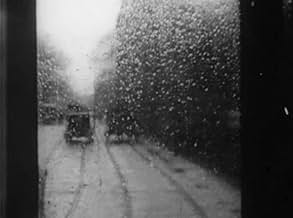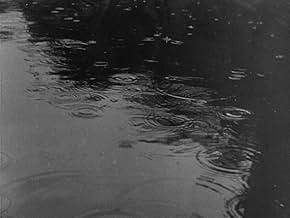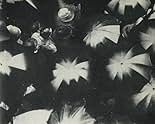Regen is an experimental documentary film directed by Joris Ivens in 1929. It can be defined as a cinematic-poem. In 2021 Breve Storia Del Cinema restored the film with a new score composed ... Read allRegen is an experimental documentary film directed by Joris Ivens in 1929. It can be defined as a cinematic-poem. In 2021 Breve Storia Del Cinema restored the film with a new score composed by Nikolas Labrinakos.Regen is an experimental documentary film directed by Joris Ivens in 1929. It can be defined as a cinematic-poem. In 2021 Breve Storia Del Cinema restored the film with a new score composed by Nikolas Labrinakos.
Featured reviews
This silent film from Holland depicts the start and affects of a rain shower in the city of Amsterdam. It is a very beautiful movie with a good score, but the movie is definitely slow. It is not particularly interesting either. It is just an old and simple silent film that is not especially important. If you get chance to see it, you should just to see how far film has come in 70 years.
The above review strikes me as particularly unhelpful for people who are actually interested in avant-garde, and poetic cinema. Yes it is slow, if you were expecting an action movie, and yes it is a silent film, but there are very few silent films which explore the poetry of the banal, the sublime everydayness of existenz. To me, it is one of the most beautiful and subtle films of all time, and is one of the first genuine "poem" films (along with H20 by Ralph Steiner, Manhatta by Paul Strand, Berlin: City of a Symphony by Walter Ruttman, and $24 Island by Robert Flaherty among others).
The French philosopher Gilles Deleuze (in his book on cinema, The Movement-Image) gives a wonderful reading of this film in which he argues that the film is no longer a representation of rain, but is attempting to give the viewer the feeling, or pure "quality" of rain, called a "qualisign". The editing is not unlike Robert Bresson in the fragmentation and use of what Deleuze calls the "any-space-whatever". In Rain the shots do not have a signed linear sequence, and have no forward movement in time (there is no character moving through the spaces, nothing to make one shot "before" or "after" another one in time). This means that all of the shots could have happened all at the exact same time, theoretically. This is one of the qualities of an any-space-whatever, a space in which the spatial and temporal potentials are de-connected (unlike a fiction or documentary film which has cohesive spatial and temporal dimensions).
Amazing movie which has gone on to influence many great poem-film-makers like Stan Brakhage, Marie Menken, Joanna Margaret Paul, Nathaniel Dorsky, Alexander Greenhough, myself and many others.
The French philosopher Gilles Deleuze (in his book on cinema, The Movement-Image) gives a wonderful reading of this film in which he argues that the film is no longer a representation of rain, but is attempting to give the viewer the feeling, or pure "quality" of rain, called a "qualisign". The editing is not unlike Robert Bresson in the fragmentation and use of what Deleuze calls the "any-space-whatever". In Rain the shots do not have a signed linear sequence, and have no forward movement in time (there is no character moving through the spaces, nothing to make one shot "before" or "after" another one in time). This means that all of the shots could have happened all at the exact same time, theoretically. This is one of the qualities of an any-space-whatever, a space in which the spatial and temporal potentials are de-connected (unlike a fiction or documentary film which has cohesive spatial and temporal dimensions).
Amazing movie which has gone on to influence many great poem-film-makers like Stan Brakhage, Marie Menken, Joanna Margaret Paul, Nathaniel Dorsky, Alexander Greenhough, myself and many others.
I watched Regen yesterday, for the first time. I had read a lot about it and was expecting a masterpiece. Something was not there - something was missing - or something was too much. I saw it for the second time. The images were fantastic - but something was impeding me to feel the masterpiece.
I thought that I was too tired - Regen was coming after two hours of watching other short movies, by Epstein, Eisenstein, Weinberg ... So I was definitely tired.
I took a break and went to the kitchen to eat something, then I came back. I saw it once more. I had an idea - I cut the sound - and I saw Regen again - and now I felt the masterpiece! It is a masterpiece. Only in its simplicity it has a grandeur, a greatness - and the music (which is fine) is not at the same level of greatness - of simplicity and greatness.
I saw it then several times - it is like a spell, it is binding you.
I thought that I was too tired - Regen was coming after two hours of watching other short movies, by Epstein, Eisenstein, Weinberg ... So I was definitely tired.
I took a break and went to the kitchen to eat something, then I came back. I saw it once more. I had an idea - I cut the sound - and I saw Regen again - and now I felt the masterpiece! It is a masterpiece. Only in its simplicity it has a grandeur, a greatness - and the music (which is fine) is not at the same level of greatness - of simplicity and greatness.
I saw it then several times - it is like a spell, it is binding you.
10Artpix
I just recently found out about Joris Ivens and is awe-inspired by the amount of pieces he made.
This piece is a study about RAIN in the city. It is a beautiful montage of images,reflections,closeups,and people in the city.
His work reminds me of Georgia O'Keefe's, work as an artist. Her work was based on bringing hidden details out into the open, I feel much the same way about Ivens. The slowness of the film gives one time to think about the images, and I like that. Unlike most films today, in and out as quickly as possible.
A must see by any image loving artist.
This piece is a study about RAIN in the city. It is a beautiful montage of images,reflections,closeups,and people in the city.
His work reminds me of Georgia O'Keefe's, work as an artist. Her work was based on bringing hidden details out into the open, I feel much the same way about Ivens. The slowness of the film gives one time to think about the images, and I like that. Unlike most films today, in and out as quickly as possible.
A must see by any image loving artist.
This is a short documentary from the city-symphony genre of film in the early era of film. Unlike most city symphonies, Rain has more of a narrative structure as it shows Amsterdam and it's inhabitants immediately before, during, and after the rainfall. The gentle melodic strumming of guitar accompanies the various images and provides for an added tranquil experience. The film is shot using often obscure angles and close ups of images out of their normal range of view. As it was made during the silent era, there are no words to taint the beauty/ experience and the images are allowed to speak for themselves- while each viewer is allowed to connect and relate their own experience with the anticipation of rain. The film is short and sweet and perhaps one of the most naturally compelling visions of early or even later cinema. If you have the rare opportunity to view this piece of art, I highly suggest it.
Did you know
- TriviaIn 2007, this film was selected into the Canon of Dutch Cinema, which is comprised of "sixteen important and defining movies that show the versatility of Dutch movie history".
- ConnectionsFeatured in Aquarius: Joris Ivens (1976)
Details
- Release date
- Country of origin
- Language
- Also known as
- Rain
- Filming locations
- Production company
- See more company credits at IMDbPro
- Runtime
- 14m
- Color
- Sound mix
- Aspect ratio
- 1.33 : 1
Contribute to this page
Suggest an edit or add missing content



















